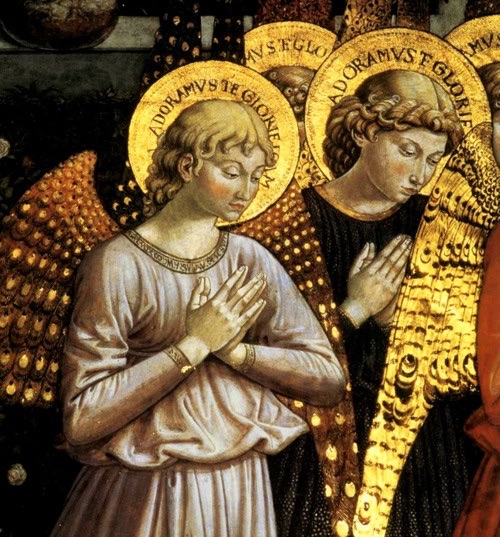ANGELS, PART VI, Odds and Ends
As I prepared this series I came across interesting tidbits of information that I struggled to fit into a coherent post. So, I have decided to just share the information without trying to create a nice article or narrative. These are fascinating odds and ends of things I have learned about angels. Enjoy.
- With Catholics and Eastern Orthodox Christians there seems to be a strong interest in ascertaining the name of a person’s guardian angel. However, the clergy usually “officially” strongly recommend against this. They believe this is God’s business.
- The belief in guardian angels is Jewish in origin, rooted in the Old Testament (see Job 33:22-26; Psalm 91:11).
- Thomas Aquinas made the case that people with very high authority (kings, presidents, bishops, etc.) probably have more than one angel assigned to them. There is only one guardian angel per individual, but an auxiliary angel can be assigned to assist those who have great responsibility. Aquinas also taught that the Holy Spirit, of course, assigns the gifts of the Spirit as He sees fit. However, Aquinas believed that angels minister those gifts to individual believers. This is based on Scripture and the understanding that God works in an orderly fashion through secondary causes and agencies. As a side note, Aquinas also believed that the various orders in the Catholic Church and each local diocese have specific giftings from the Holy Spirit as ministered by angels. Obviously, the different orders and diocese have various specific niches of ministry. This would also mean that orthodox Protestant churches have different giftings. This seems clear to me.
- Angels do not have wings. They are pure spirits. However, wings represent their ability to appear anywhere in the universe and to quickly minister as directed by God.
- Angels do not have to travel from one place to another. What they do is will themselves to appear or to be in a place. They travel–so to speak–at the speed of thought.
- Our sinfulness does not sadden the angels because they always behold the face of God and, therefore, are full of delight. On the other hand, their joy is made more complete when sinners repent.
- Though angels are neither male nor female, there is no biblical reference to any angel appearing as a woman. They are always spoken of in masculine terms–despite Hollywood’s view of angels. This is probably for two reasons: 1) they represent God’s power to defeat any human military; and also 2) to avoid any association with female, sexual fertility religions.
- While the primary role of guardian angels is to guide us to God and eternal life, they also protect us from the onslaughts of the devil and from physical dangers. It is perfectly legitimate to ask God to protect us spiritually and physically through the agency of angels.
- Evangelicals are very comfortable quoting Paul from Ephesians 6 where he tells us that we “war not with flesh and blood”, rather we wrestle with the “dark” demonic forces that stand behind the humans who oppose God and his church. Conversely, Evangelicals are less comfortable seeing that the opposite is also true; namely, that there is angelic agency behind the work of God’s people. In doing this, are Evangelicals inadvertently attributing greater involvement in human affairs to the fallen angels rather than to God’s Blessed Angels? If so, this seem regrettable.

